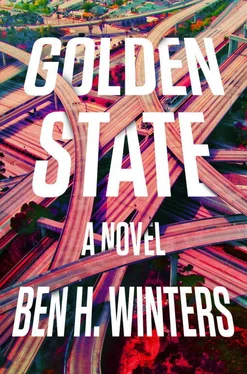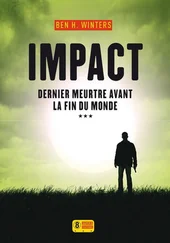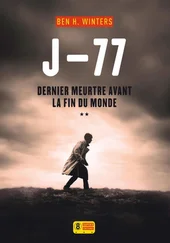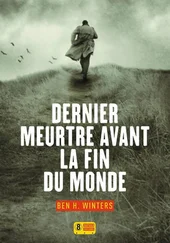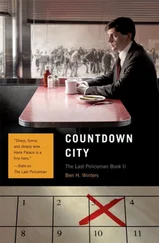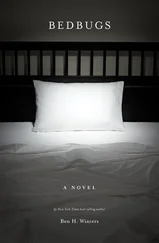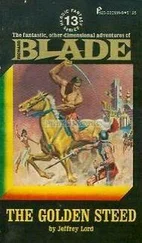“‘No’ because—” Finally, with a deep breath: “‘No’ because nobody would ever do that.”
“I know,” I say, but the problem is, I’ve already figured out that yes, somebody would do that, and now I’ve come down hard on a bone truth, on the brutal bone truth that if there is ever anything that somebody could do—something violent, something vicious, something cruel and unconscionable—if there is ever anything that somebody is able to do, somebody will find a way to do it, somebody is going to do it, somebody has already done it.
So of course someone has figured out how to alter stretches to make them reflect reality that never occurred. Someone has done it. Someone has done it to this one, the same person who invented Mose Crane so I might find him.
The only question is who did it, but that isn’t a question anymore.
I know it, I have known it, I can’t not know it anymore.
“Woody?”
“Yeah? Yes?”
He is wary of me now, I’m an animal set loose in his small office, charging in circles. He doesn’t know what I’m going to do next. “I need to do a live watch.”
“Well—”
“Don’t say no. I need to connect to live captures.”
“Where?”
“The Record.”
“I—come on. Laszlo. I can’t .”
“You can.”
He can’t because the world is watching. Because reality is always being captured. Because if anyone sees him do such a thing willingly, he will face the consequences. So he will have to do it unwillingly, that’s all.
I draw my weapon and aim it at Woody. “A live feed. Right now. A tapestry. Every basement. Now. ”
Woody turns back to his deck and I keep the gun aimed at him, continuing the performance, until he presses a final button and the blackness of his screen lights up into a thousand subdivided screens. The Record itself has eyes inside it, of course it does, the Record is on the Record , and Woody the magician can open its eyes, open all of those thousands of eyes at once. He turns his screen into a tapestry of screens, divided into a dozen boxes which then scroll, each of them, and we are suddenly everywhere inside of those famous basements, peering into the catacombic guts of reality itself.
It doesn’t take long to find him.
Arlo Vasouvian in the dim subbasement light, moving with deliberation along a narrow carpeted space between two file cabinets.
“What the fuck?” says Woody. As we watch, the old man peels the lid off a box. His bifocals are perched on the tip of his small nose; he’s squinting, looking for something. “Is that—”
“Yes,” I say. But I can’t say the name. It is too painful. There would be glass in my throat. It is one thing to suspect that your heart has been broken, another thing to know.
“What floor is he on?” I croak. “Which capture are we looking at?”
“Uh—sub nine,” says Woody. “What’s he doing?”
“What’s on sub nine?”
But before Woody can answer, Arlo turns to the capture that is watching him, turns and looks at us watching him, and smiles.
“What the fuck? ” says Woody, pushing away from his machines and looking at the ground.
Arlo’s smile widens into a grin as he is looks right at the capture and raises one hand in greeting, because he knows we’re watching. He can see us seeing him, and his cheery acknowledgment is as sharp and violent as a punch. He is inside reality, looking out.
I turn away from the screen at the sound I hear behind me, the sound of Woody being quietly sick into the trash can besides his desk. I breathe deep and fight off the same unsettling need, because I am wobbling too, walking slow, dizzy, through a world shuddering under my feet.
Coda (setup for sequel):
Agent Charlie Ratesic, the hero laid low, muttered from the depths of his unconsciousness while his head lolled back and forth in his hospital bed. The machines keeping him alive and free of pain beeped endlessly in the small room, their rhythm like a mechanical pulsebeat.
I was sitting on a chair by the edge of his bed, as I had been sitting for a week, keeping him company, telling him stories, waiting for him to wake.
“I’m sorry, Charles,” I said, as much to myself as to him, as much to the captures in the room as to the person who lay before me, past the reach of hearing. “I am so dreadfully sorry.”
I had said these words so many times already. Others had come and gone. Charlie’s heartbroken parents, our colleagues bearing flowers, cards, the doughnuts they knew he loved, which at the end of each day I took out with me and distributed to the doctors and nurses. Poor Laszlo’s, Charlie’s brother, had come every day, come and sat silently beside me for hours after his own shift was through.
Technically, I had little to apologize for. I had told Charlie not to return to that warehouse. Indeed, I had not only warned him but ordered him not to. He knew that it would be my duty and my responsibility to take the steps necessary to shut it down: an Off Record house could not be countenanced, and I had to act.
He knew we would be going in there, and that we would come in with weapons blazing.
And yet when the decisive day came, and we swept in with the full force of the State, there he was, still undercover, skulking among the conspirators, unable to free himself from the idea that there was a monster left for him to find.
He had been caught in the cross fire. Shot six times, including twice in the stomach and once in the chest—a bullet that pierced the lungs and brought him perilously close to dying right there, off the Record, on a dirty warehouse floor in Glendale.
And perhaps that would have been better, I thought with sadness as I listened to the machines breathing for him. As I watched the medicine dripping into his arm. Drip, drip .
“Arlo?”
I had fallen asleep, I suppose. My eyes opened to find his looking into mine. Charlie, dear Charlie. He spoke, clearly but with difficulty. “The monster,” he said, and I closed my eyes. Still. “I have to…” He cleared his throat. Turned his head to one side.
“Goodness, Charlie,” I told him. I opened my eyes, leaned forward and took poor Charlie’s hand. “I wish you would take pleasure in your success.”
“Success,” he murmured. “Success.”
It was like he could not accept the word. Like he was rolling it around in his mouth, tasting it, unsatisfied. The machines beeped and hummed.
“Yes, Charlie,” I said. “ Success. Numerous arrests were made. A grave assault on the Objectively So was ended. All because of you, Charlie. Because of you.”
“The monster—could be anyone.” He couldn’t stop. He wouldn’t. My old friend, still in the thrall of this wild idea. What was to be done? He looked up at me. Desperate that someone believe him. “What if it were an Expert, Arlo? What if it were someone from the Office of the Record?”
“Or”—I stood up, wiped my hands, leaned as far over his bed as I could, whispered as quietly as possible—“a Speculator?”
All four of them are dead, each with a single neat bullet hole through the center of the forehead.
The duty team, caught unawares by a familiar face. I recognize them all, Librarians who worked the entrance of the Record, rigorous and polite and efficient.
The first is just inside the door, thrown back against the wall, still wearing a stunned expression, blood in a frozen trickle from the bullet hole down into the line of the eyebrows.
The second is centered in the lobby, slumped at the wanding station, thrown across the small desk with one hand outstretched, clutching his weapon as if caught just before he could fire.
Читать дальше
